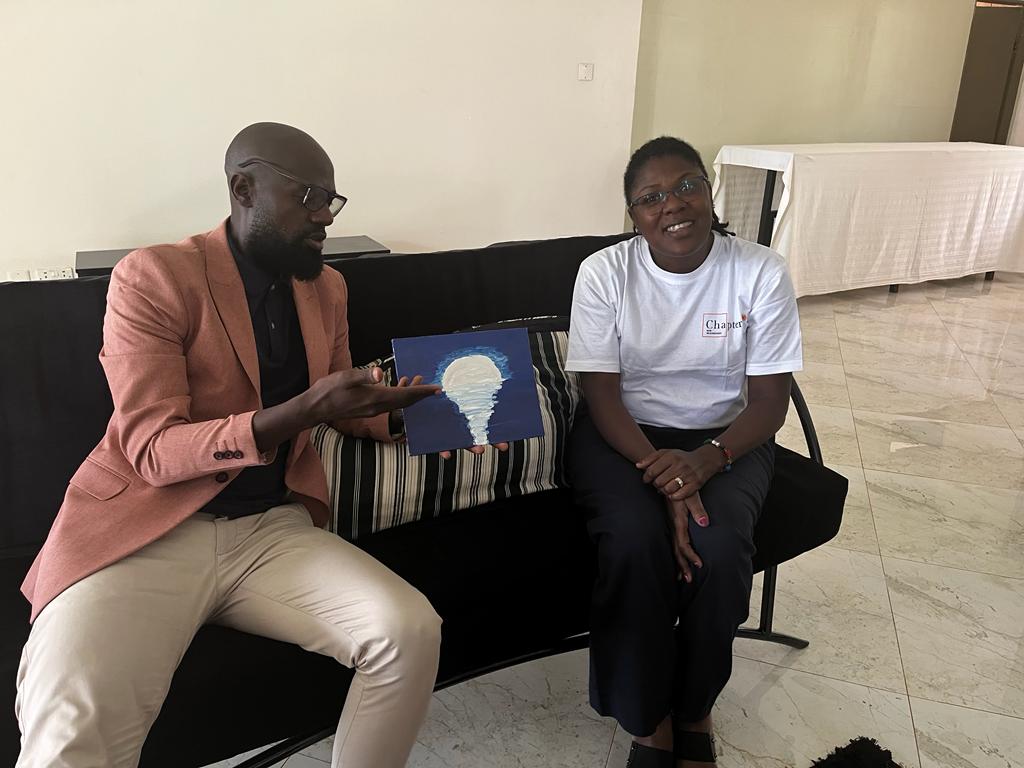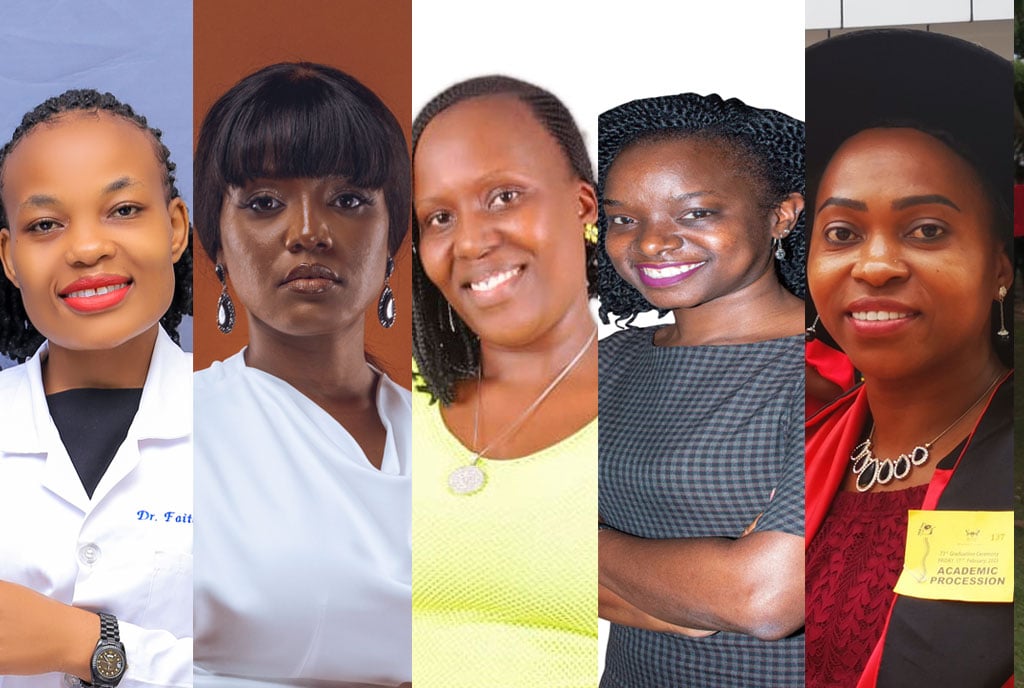Kaggwa: Zealous about treating mental illness

Partners. Ms Kaggwa chats with with one of her business partners Moses Mpanga. PHOTOS | FRED MUZAALE
What you need to know:
- Olivia Kaggwa, a psychologist after chasing a corporate career settled for her passion, helping people with mental health problems. She set up a facility in Wakiso District for the cause and does not regret her move, writes Fred Muzaale.
Few people who are not mental health professionals would want to attend to patients with mental illness, given their usually intermittent conduct. But for Olivia Kaggwa, treating people with mental illness is an area she has been passionate about since her youth.
As a youth and after her graduation with a Bachelor of Psychology from Makerere University in 1999, Kaggwa, 47, would offer free moral support and counselling services to fellow youth who seemed to have mental health disorders.
She would later get employed in the corporate world where she worked for two decades in various corporate companies and in senior positions.
Passion calls
In 2020, Kaggwa eventually resigned her job from one of the local leading communications companies to pursue her passion in mental health.
“I was working in a very senior position but I decided to resign because I felt I had done enough (in the corporate world) and it was time to pursue my passion in mental health,” Kaggwa, a mother of three says.
A director at Victoria Medical Services, Entebbe, Kaggwa later in 2022 partnered with other psychologists who include Grace Kiggundu and Moses Mpanga to set up Chapters Health and Recovery Centre in Wakiso District.
The facility provides in-patient and outpatient mental health services for drug and alcohol rehabilitation and other mental conditions. Starting the facility, Kaggwa says was aimed at providing private mental health solution services.

Ms Kaggwa, forth from left with other colleagues at the centre.
She explains that mental health patients need to be treated with dignity and patience in order not to be stigmatised, adding that stigmatisation in many cases hinder such patients from seeking treatment.
Common illnesses
Kaggwa says the most common mental illness cases in the country include anxiety disorder, depression and bipolar disorder.
“Many Ugandans have mental-related illnesses but the main focus on mental health is on the pathological aspect (areas showing definite behaviours, thoughts and emotions).This leaves many others suffering silently,” she explains, adding, “People think mental health patients are only those that throw stones which is not true because there are patients who seem to be well yet at closer interaction, they are mentally ill.”
The latest report from the Uganda Counselling Association and the Ministry of Health indicates that at least 14 million Ugandans are mentally sick with others saying the figure could be even be bigger given that many sufferers do not seek treatment from health facilities.
Kaggwa says due to pressures of modern life, substance use and economic hardships, among other causes, many people and employers have realised that they need mental health services.
“What our people should know is that if not treated, anxiety and depression can result in drug and alcohol addiction because such patients want to numb themselves from these conditions,” Kaggwa says.
However, the psychologist’s she says her desire is to try to save people before they fall into addiction, suicidal and self-harm. And to save people, Kaggwa says her and colleagues conduct outreach programmes in schools and communities, where they talk to young people about specific topics such as book stress.
“We are trying to get to a point where we encourage people to be able to speak freely and normalise the conversation on mental illness,” she explains.
The process
In the rehabilitation process carried at Chapters Health and Recovery Centre, psychiatrists provide a treatment plan. In case of detoxification, it takes two to three weeks depending on the substance one has been taking.
“After a patient has been detoxified, we start on proper therapy where we try to find out why this person takes drugs and who supplies them to him or her. Sometimes it takes time to get to the bottom of the problem because if it is not handled that way, they will go back and relapse,” Kaggwa shares.
At the facility, provide a family home setting where patients can freely express themselves with a serene environment and are helped to engage in co-curricular activities such as football, dance to de-stress.
With a capacity of 20 beds for in-patients, Kaggwa says she helps patients who have recovered to get back their social skills and ability to earn income after which they are reintegrated in the community and reunited with their families. In a week, she says they attend to at least 60 outpatients.
Challenges
Kaggwa says her biggest challenge is lack of data and information on mental health in the country.
“In most cases when a child develops mental illness, people think the child is just wild as he/she is sick,” Kaggwa notes.
Self-diagnosis of the mental health conditions by most patients, especially the youth.
“Today, it is a style for most youth to associate themselves with a mental illness which is dangerous,” she says.
Also, she notes that insurance providers don’t cover treatment of mental illness. However, she says they are trying to talk to insurance providers to also include this, in their services.
Kaggwa also says many people do not want to associate with people who have mental illness even when they have recovered.




